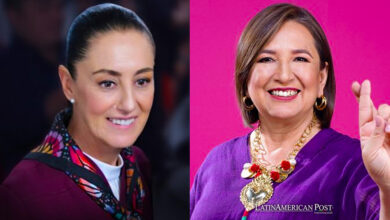Tone Policing Most Often Targets Black Women
Tone policing happens when someone shifts a discussion to someone's tone or approach instead of the message itself. This microaggression most often targets black women.

The Woman Post | Carolina Rodríguez Monclou
Listen to this article
As Ijeoma Oluo writes in her book, So You Want to Talk About Race: "Tone policing prioritizes the comfort of the privileged person over the oppression of the disadvantaged person. Most damagingly, it places prerequisites on being heard and helped." Unfortunately, black women are the primary victims of this phenomenon, especially in the workplace.
As Business Insider points out, "The angry black woman trope is a harmful stereotype that allows racism against Black women to continue. Based on this stereotype, Black women are often painted as aggressive, hostile, and threatening."
A study carried out by the American Psychological Association shows that black children are perceived as more aggressive than white children for displaying the same kind of kid behaviors. Consequently, this problem runs deep, and the impact is wide. As proof of it, tone policing has affected how black women are treated whenever they are assertive or outspoken.
This harmful trope it's a combination of the sexist idea that women should always be meek and passive no matter what. Consequently, the racist perception of black people being more aggressive and uncivil than others, even when the behavior isn't much different, keeps being perpetuated.
Congresswoman Maxine Waters and Now-Vice President Kamala Harris were constantly criticized because of their candid and forthright way of speaking on the House and Senate floors. But when white male politicians go into angry rants, they're often praised for their enthusiasm and passion.
But it's not just famous black women and public figures who have to deal with the angry black women stereotype. This microaggression is something that probably most black women have to navigate in their daily lives.
Sadly, it's a very specifically heinous form of marginalization. It takes what we already know about how black people are perceived as angrier, more unfriendly, and more hostile and then adds a layer of misogyny. For this reason, tone policing can be highly problematic for anti-racism efforts.
Managers striving to create an equal workplace must understand how this phenomenon silences members of marginalized groups and promotes discrimination. Mainly, tone policing is used to silence women who express any emotion. It also implies that their message loses value when shared with passion.
Also read: 3 TIPS TO RUN A SUCCESSFUL BUSINESS IN 2022
Here are some steps to avoid tone policing in the workplace:
-Awareness of this issue is critical: Telling a person to calm down or ignoring their words are some indicators of tone policing. To avoid this, it would be helpful if managers educate themselves and their teams about this issue.
-Validate others' feelings: Regarding the tone in a message is delivered, employees should feel that their emotions and opinions are valid. Managers must understand that each discussion will bring different feelings, and that's okay.
-Normalize feelings of anger, sadness, and frustration: These emotions are likely to emerge in a stressful environment as a natural human reaction. Each people express their emotion in different ways, and this shouldn't be used as an excuse to silence anybody.
Many companies keep making great efforts to advocate for gender equality. However, riding off misogynist practices is also an essential task that managers should work on.




